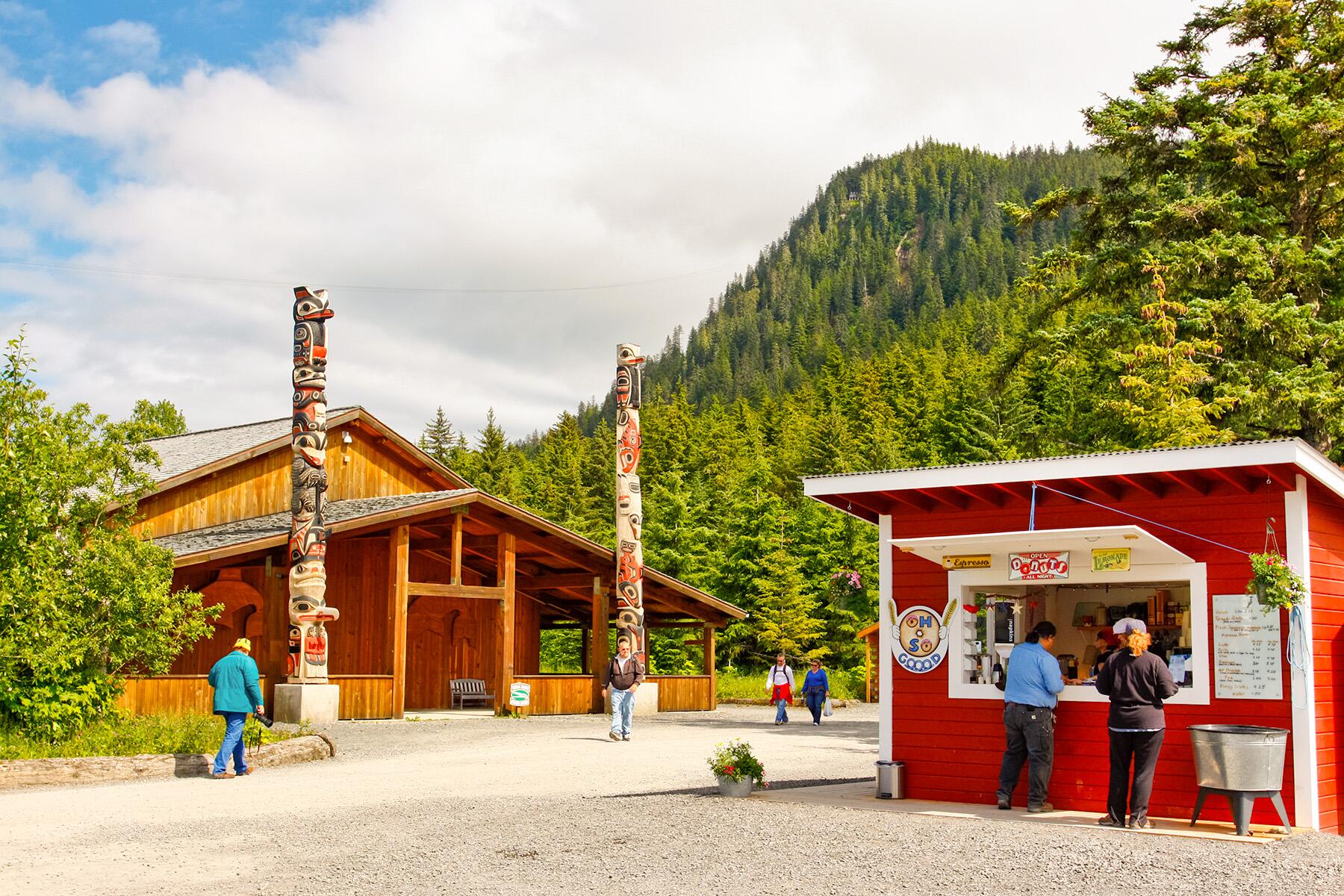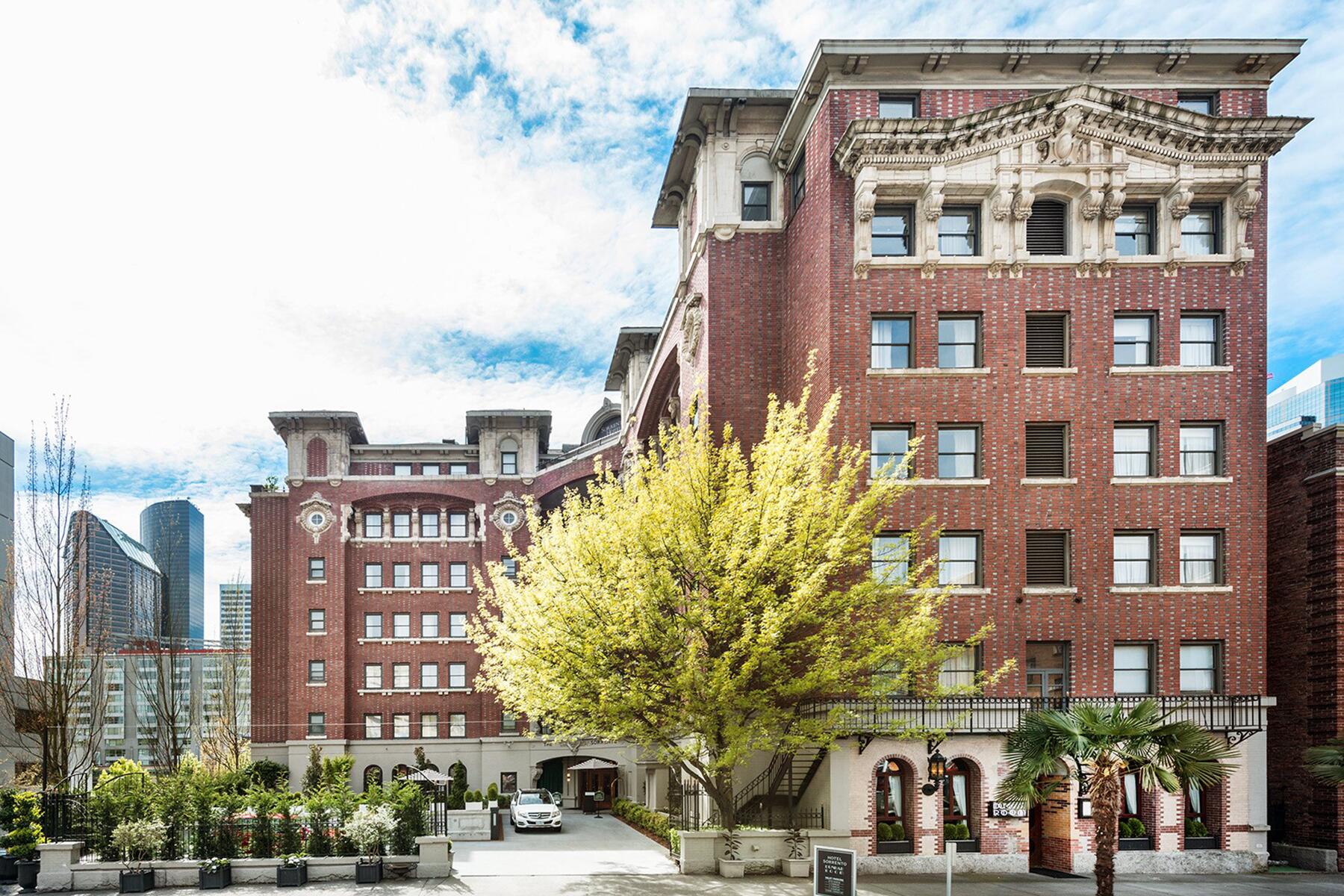Famed early 20th-century author Alice B. Toklas’ storied legacy lives on at the Hotel Sorrento in Seattle.
Sometimes she appears in the garden, in her iconic full-length fur coat. Some guests have heard her, the once-promising concert pianist, playing the hotel piano on the 7th floor. Other nights she shuffles drinks around in the Fireside Room or wanders the fourth-floor hallways in a flowy white dressing gown. Some swear you can catch a glimpse of her in the mirrors at the end of the hallways on every floor of the hotel. Alice B. Toklas, who you may know as a beloved author and famed partner of Gertrude Stein, is also a permanent and paranormal occupant at the 112-year-old Hotel Sorrento in Seattle, Washington.
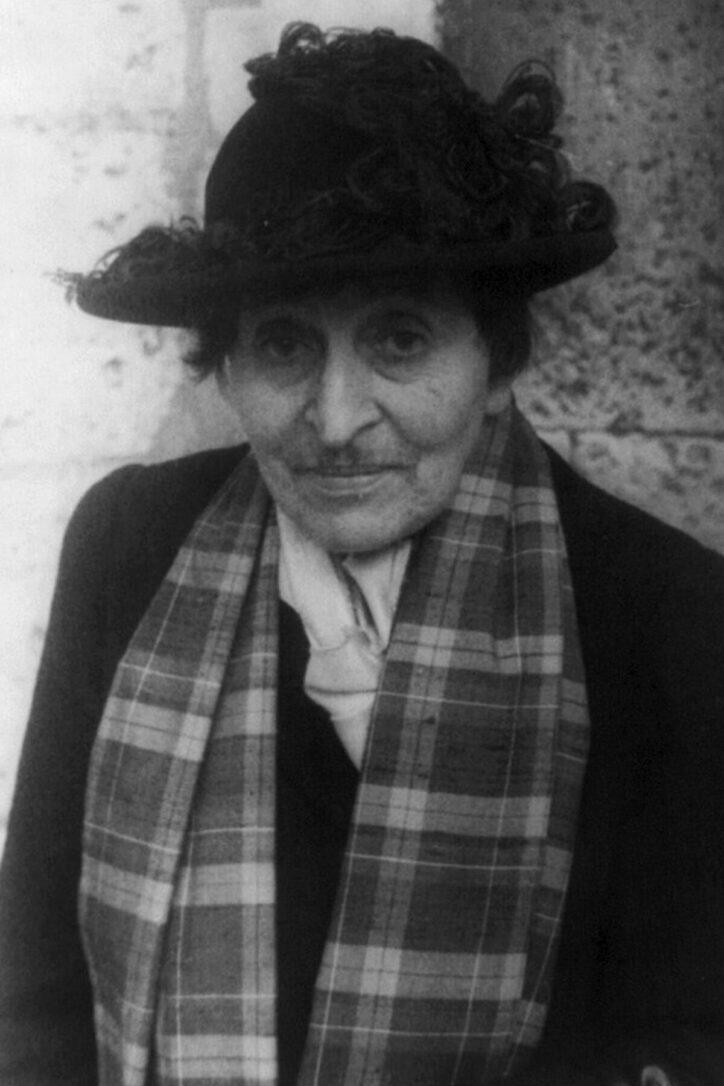
The Hotel Sorrento, just uphill from downtown Seattle was built in 1909. The Italianate hotel, now a historic landmark, with its mahogany-paneled walls and low ceilings dangling crystal chandeliers, has a certain inherent haunting aesthetic. The green-tiled fireplace in the lobby’s adjoining Fireside Room crackles ominously as guests and bar patrons filter in and out. The hotel was erected at the turn of the century as Seattle approached 240,000 residents and celebrated its gold-rush era economic boom with a world’s fair, on the same grounds believed to have been Alice’s childhood home a decade earlier.
Before Alice moved to the neighborhood (for eternity, it would seem), she was born in San Francisco in 1877. She moved to Seattle in 1890, where her father, a revered businessman and half of Toklas, Singerman, and Company, owned and operated the “San Francisco Store,” a general merchandise store, that was the most successful menswear business of the time. After the Great Seattle Fire of 1889, Alice, aged 13, moved with her family to the First Hill neighborhood of Seattle, the present-day home of the Hotel Sorrento.
Recommended Fodor’s Video
“And so the rumor is her childhood home was where the hotel now is. That’s her relationship with the hotel. Whether it’s the exact address or just the neighborhood, I haven’t been able to find out those details and I’ve gone into the City of Seattle records and just dug and dug, and I can’t find anything,” said Tiffiny Costello, a former marketing director for the hotel and guide on ghost tours of the hotel. The tour takes guests throughout the hotel, including to the fourth floor and room 408, where both Alice’s ghost and other phantoms are known to linger.
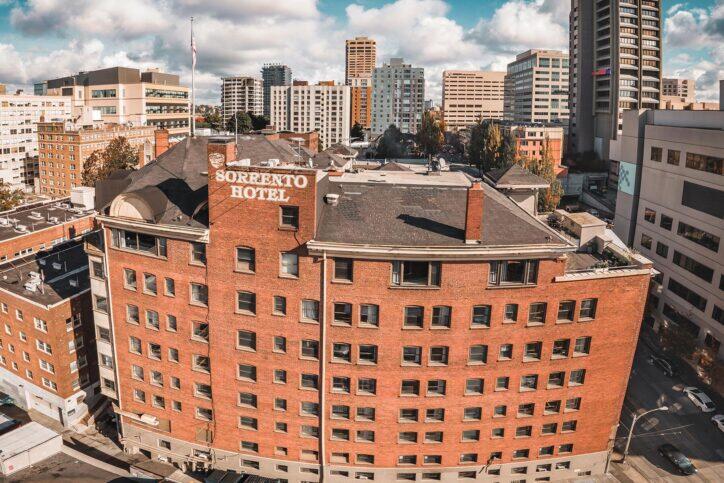
“The first week I started [at the Hotel Sorrento] in 2019, I was going up for something and the elevator just stopped on the fourth floor [and no one was there]. Doors opened and then the doors closed and it moved on to the sixth floor,” said Costello, who now lives in New York City, but continues to manage the hotel marketing and this month came back to Seattle and the hotel on business. “Now, the same thing happened yesterday. I was coming down to get coffee from the fifth floor, which is where I’m staying, and the fourth-floor doors opened, closed, and then went on. So I’m like, oh, Alice, you’re just saying hello and welcome back,” she said.
While today First Hill is a neighborhood locals associate with hospitals—it is lovingly referred to as Pill Hill as three of Seattle’s major hospitals are all located in the area—in Alice’s youth the neighborhood was home mostly to wealthy, business elites, from timber barons to industrialists like William Boeing. From her biography, we know that at this home in First Hill her mother, an avid gardener, kept a beautiful garden full of flowers. Perhaps that’s why so many guests tend to spot her in the garden at the Hotel Sorrento.
“The one situation that’s been reported the most is seeing Alice roaming around in the garden in her overcoat and little hat,” said Costello.
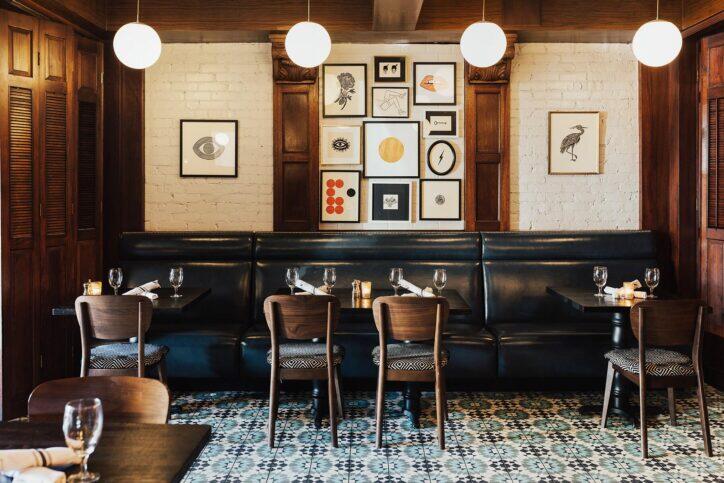
Alice went on to attend the University of Washington in Seattle where she studied piano before her mother was diagnosed with cancer and the family returned to San Francisco, more than 10 years before the Hotel Sorrento was built in 1909. In 1907, Alice traveled to Paris where she first met Gertrude Stein and embarked on their famed romance; she also hosted salons with authors at the epicenter of the literary zeitgeist of the time, including Hemingway and Fitzgerald, and cooked dinner for Picasso and Matisse.
“The Hotel Sorrento has a very literary, artistic past. A lot of jazz artists have performed here. It used to be the place where poets, writers, and literary folks would gather,” said Costello citing the hotel’s similar culture to Alice’s experience in Paris with some of the greatest creatives of the early 20th century. “We think maybe that is what brings her back or that she misses her childhood home, the area where she grew up,” said Costello.
After the passing of Gertrude Stein, a relationship that at the time was not legally recognized, Alice lost many of their shared valuables to Stein’s family and was in need of money to support herself on her own. That pushed Toklas to author The Alice B. Toklas Cook Book in 1954. The book was part exploration of classic French cookery from an American viewpoint, á la Julia Child, and part memoir–this time in her own words, as her “autobiography,” The Autobiography of Alice B. Toklas, was actually written by Stein. The cookbook became infamous for its “Hashish Fudge,” a precursor to the weed brownie based on the Moroccan treat, majoun, a sweet confection containing no chocolate and instead filled with dried fruit, nuts, spices, and of course, cannabis.
The recipe, contributed by a friend and Morocco-based artist Brion Gysin, specifies Sativa (known for increasing creativity, unlike Indica cannabis strains, which often turn people into proverbial couch potatoes). The recipe even provides notes for growing cannabis at home and includes the heading, “HASHISH FUDGE (which anyone could whip up on a rainy day).” In a state where cannabis is now legal, the recipe–which was once called a publicity stunt–now serves as a bonafide guide to homemade edibles, complete with the warning that “two pieces are quite sufficient.” You can even hear Alice read the recipe aloud on Pacifica Radio in 1963.
Today, the hotel honors her culinary past with an annual dinner featuring recipes from the book (unfortunately, not that recipe, as it requires special licensing), with this year’s dinner planned for sometime in November.
But no matter the time of year, Alice is around—and don’t worry, she’s benevolent.
“One woman who visited the hotel had a husband who was cheating on her at the hotel. She said that she heard loud banging on the walls and believes it was Alice waking her up to let her know that her husband was cheating on her,” Costello recalls, “There’s a protective feeling here. Like hey, I’m here, but you’re allowed to be here too. Things are not sinister. Alice isn’t mean or playing tricks.”


